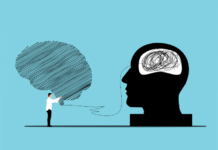In today’s fast-paced world, our minds are constantly processing information, managing stress, and juggling emotions. It’s no wonder that mental health has become a central focus in discussions about overall well-being. Understanding how our mind and mood interact, and learning how to support them, can lead to a more balanced, resilient, and fulfilling life.
The Importance of Mental Health
Mental health is more than just the absence of illness—it encompasses emotional, psychological, and social well-being. It influences how we think, feel, and act, as well as how we handle stress, relate to others, and make choices. Prioritizing mental health is just as vital as caring for our physical bodies.
Mindfulness: Being Present in a Distracted World
At the heart of mental well-being lies mindfulness—the practice of paying attention to the present moment without judgment. Whether you’re walking, eating, or simply breathing, mindfulness invites you to slow down and fully experience what’s happening right now. Studies show that regular mindfulness practice reduces anxiety, improves focus, and enhances emotional regulation.
Simple ways to practice mindfulness:
- Take 5 minutes to breathe deeply and observe your surroundings.
- Practice gratitude daily—note 3 things you’re thankful for.
- Eat a meal without distractions, noticing the flavors and textures.
Emotional Well-Being: The Art of Feeling
Emotional well-being means being aware of your emotions, accepting them, and expressing them in healthy ways. It’s not about feeling happy all the time—it’s about embracing the full spectrum of human emotion and navigating it with awareness and self-compassion.
Tips for emotional balance:
- Allow yourself to feel without shame.
- Talk to someone you trust about what you’re going through.
- Use journaling as an outlet to process emotions.
Meditation: A Tool for Inner Peace
Meditation is one of the most effective tools for calming the mind and reducing stress. Even just 10 minutes a day can rewire the brain, lower cortisol levels, and foster a sense of clarity and peace.
Types of meditation you can explore:
- Guided meditation (great for beginners)
- Loving-kindness meditation (to cultivate compassion)
- Body scan meditation (for relaxation)
🛋️ Therapy: Asking for Help is a Strength
Sometimes, we need more support than we can provide ourselves. Therapy offers a safe space to explore thoughts, emotions, and patterns that may be holding us back. Whether it’s cognitive behavioral therapy, talk therapy, or EMDR, finding the right therapeutic fit can be life-changing.
Therapy can help with:
- Anxiety and depression
- Trauma and grief
- Relationship issues
- Self-esteem challenges
Self-Reflection: Knowing Yourself to Heal Yourself
Self-reflection is the conscious act of looking inward and examining your thoughts, feelings, and behaviors. It’s how we gain insight, make meaningful changes, and grow. Whether it’s through journaling, meditation, or deep conversations, reflecting on your life can bring clarity and direction.
Questions for self-reflection:
- What am I feeling right now, and why?
- What patterns keep showing up in my life?
- What do I need more (or less) of to feel fulfilled?
Taking care of your mind and mood is an ongoing journey. Through mindfulness, emotional awareness, meditation, therapy, and self-reflection, you can build a toolkit that helps you thrive—not just survive. Remember, it’s okay to not have it all figured out. Healing is not linear, and every small step counts.
Your mental health matters. So take a deep breath, check in with yourself, and start where you are.






























